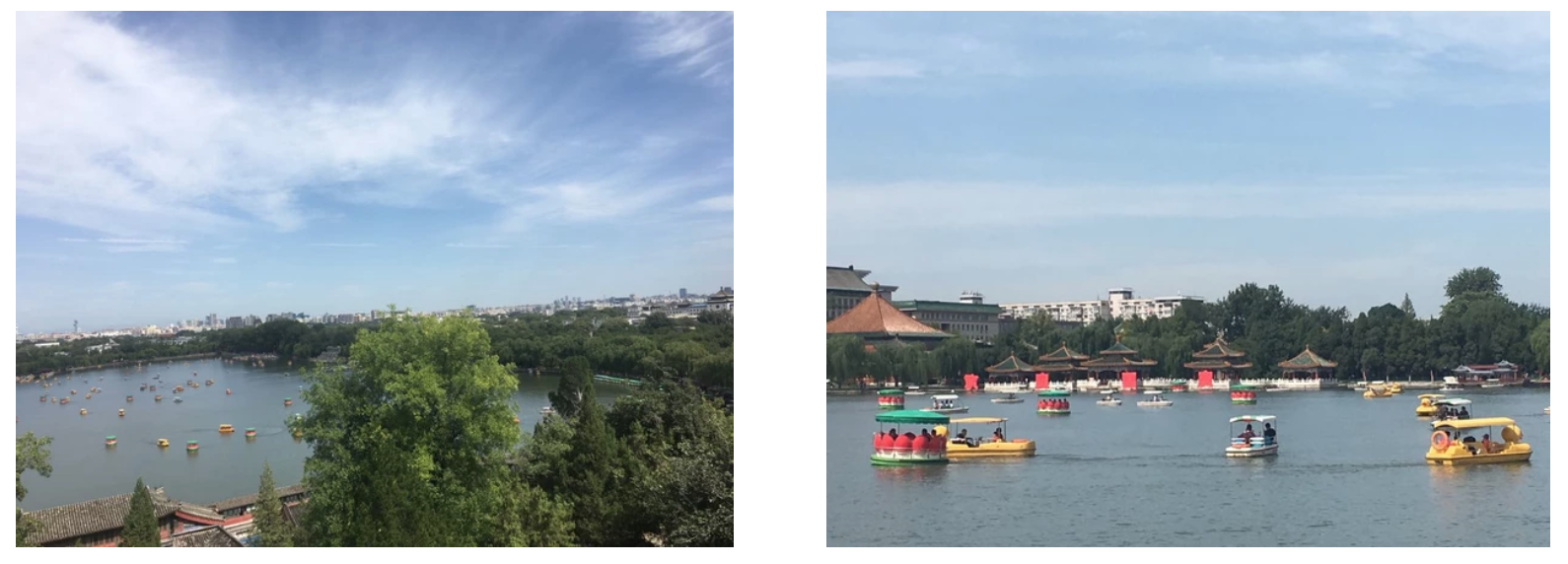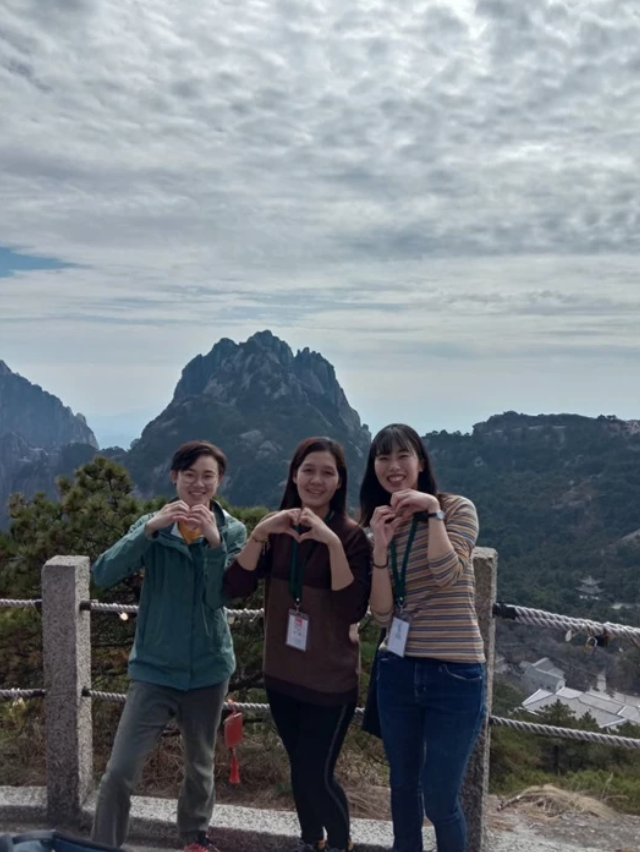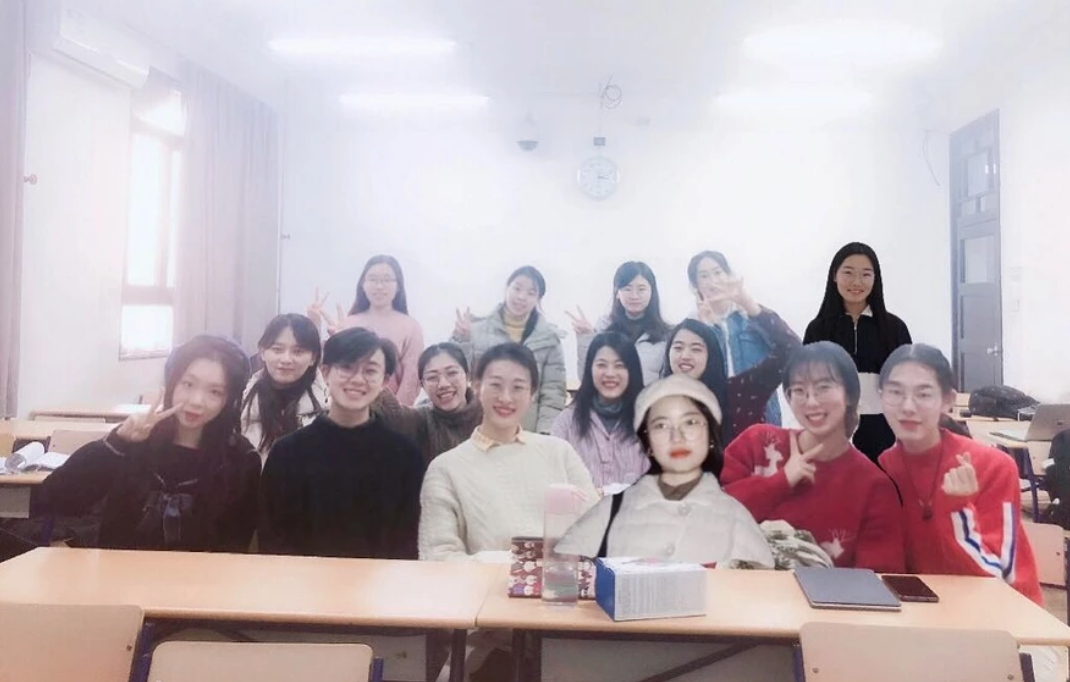Authenticity as a Chinese-American
By Mackenzie Lew ‘19, Beijing Normal University (2019-2020)
Before writing this narrative, I tried to come up with a catchy symbolic thread to connect my reflections on the past seven months abroad. Like a regular breakfast stop for jianbing (I think they’re just…okay), or practicing patience in a calligraphy class (those weren’t offered last fall, I’m hoping I can take one this spring), and maybe this would sum up how I’ve found a way to fit my life into Beijing, and Beijing into mine. I still feel a distance between myself and my surroundings. This distance, in language and in culture, has lead me to reflect a lot about authenticity and identity.
Authenticity is a topic I loved to discuss in my time at Oberlin with Asian Night Market. We considered what kinds of foods to sell, what food meant to us; that often included ideas of what was authentic or not. For me, authenticity is not so important. People move around, and so does their food. I think that chasing authenticity can sometimes dismiss the realities of where people are, and how they’re able to make food. I like to think about this especially when thinking about Chinese American food. Not less authentic than Chinese, just different and with its own distinct history. So even with this in mind, I did expect the food I ate in China to taste like what I thought every Chinese grandma would make (because, somehow, they would all make the same things all the same way). But often times when I eat at the canteens, or even at some restaurants, sometimes it tastes...similar to The Mandarin. It tastes like a lot of the Chinese American food I’ve eaten at restaurants before.
It’s true the food in Beijing isn’t as easy to find in the U.S. A lot of the food is different, but a lot of it is the same to me. So much of what I expected to be different was the same, and a lot of what I thought would be the same is different. Lots of those things are small daily life things. Like no one here uses three-ring binders, and everyone prefers pens and white out to pencils and erasers. I don’t really understand why the bus attendant is there instead of a cord to pull, and WeChat and AliPay are the kings here.
With these unexpected similarities and differences, it’s changed my view of what China is. I guess that is the goal of going abroad on a fellowship, but for some reason I didn’t expect that to happen so strongly. As a Chinese American, even though I don’t speak the language or celebrate many holidays, I still felt very comfortable with my knowledge of China and being Chinese. I feel very strongly Chinese American, not Chinese, but I still assumed some of my knowledge could leak into knowing what exactly it means to be Chinese. That definitely changed after coming here. I continue to identify strongly with being Chinese American, but I also have come to see myself as very American and Western, too.
In the early part of the fall semester, I participated in a psychology experiment. It was comparing Chinese and American views of each other. I was paired with a Chinese participant and we looked at images and videos, filled out questionnaires, and talked with each other about different issues. One section showed different pictures of what is ‘American,’ and how related the two photos felt. For example, a football and the flag. Or, a football and the Statue of Liberty. One very similar, one not so much. Those felt very easy to tell apart. Then we measured how related Chinese images felt. Lanterns and calligraphy. Lanterns and a statue. The Chinese images all felt the same to me, I was surprised how quickly I categorized them as broadly Chinese, since I didn’t really know much background. This reminded me how much I strongly identify as Chinese American, or Asian American, rather than Chinese or Asian. Being abroad has given me more context in understanding the dominance of American culture, and being an American.
Another aspect of authenticity has been running a class all on my own, to students who are now devoting their careers to become language teachers themselves. I found this extremely intimidating, and I still do, but as the semester went on I got to know my students better, and I’ve stopped worrying as much. The relationships I’ve built with my students have been the most fulfilling part of my year so far, and it’s exciting to see their progress and willingness to participate. Their final presentations were especially impressive to watch, as they introduced things like flutes, feminism, and mental health. I’ve enjoyed getting to know each of the student, all the work that they put in, and seeing them grow. I enjoy figuring out what works and what doesn’t, and students have generally been vocal about what they like.
Spending time abroad has also allowed me to meet a lot of people from different countries. In my Chinese classes I’ve been able to meet people from Europe, Japan, Korea, Indonesia, and Cambodia. Although conversations are still limited, I enjoyed having Chinese as our common language. I got to know my classmates and students best, using mostly Chinese, during a week-long trip to An Hui. We rode the 19-hour long train together and toured old villages and Huang Shan, and for most of that week I communicated with just Chinese.
I’ve gotten used to explaining to strangers (I’m American, yes really, yes I do look Chinese, no but I’m fourth generation). My Chinese American identity has also grown to consider what it means to be Chinese in Asia, its dominance, and the dominance of being Han Chinese within China. Living in China for these several months has already expanded my worldview, an asset that I underestimated. I expected that I wouldn’t find a sense of belonging, and that feels true still (at least in a Chinese identity sense) but the China that I expected to find wasn’t here either.
Beihai Park, September 2019. View of boats from Beihai park, one of my first outings into the city.
Huangshan, November 2019. School trip to Anhui, with Meili and Hinako (classmates from my Chinese class)
Huangshan, November 2019. Standing at a lookout on Huangshan.
Beijing Normal University, December 2019. With some students after finishing their final presentations. Some were gone for training already, so photoshopped themselves in.
(From left to right) Back: Grace, Rita, Sylvia, Dora, Emma
Middle: Cathy, Aimon, Pearl, Sophia
Front: Suhang, me, Joy, Mia, Jane, and Hao Hao





